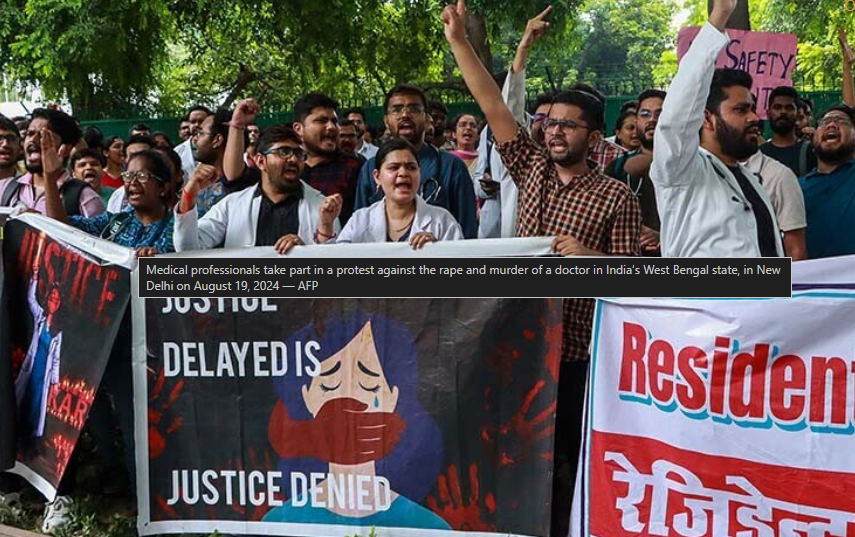
Berlin, August 30, 2024 – In a move that has sparked widespread debate, Germany has begun the deportation of Afghan nationals, marking the first such action since the Taliban regained control of Afghanistan in August 2021. The deportations come amid ongoing concerns about the safety and human rights conditions in the war-torn country.
Background
The German government had suspended deportations to Afghanistan in August 2021 following the rapid advance of the Taliban and the subsequent collapse of the Afghan government. The suspension was a part of a broader international response to the deteriorating security situation in Afghanistan, with many Western countries halting deportations and focusing on evacuating at-risk individuals, including those who had worked with foreign governments.
However, as the Taliban government has solidified its control over Afghanistan, the German government has come under increasing pressure to resume deportations. Proponents of the deportations argue that some Afghan nationals in Germany do not have legitimate asylum claims and pose a security risk, while others maintain that Afghanistan is still too dangerous for any returns.
The Deportation Process
The deportations, which began earlier this week, involved a group of Afghan nationals who had exhausted all legal avenues for staying in Germany. The individuals were reportedly transported to Kabul on a chartered flight under heavy security.
German authorities have emphasized that the deportations are being carried out in accordance with international law and that each case has been thoroughly reviewed to ensure that the individuals in question do not face immediate danger upon their return. “We have a duty to enforce the rule of law and ensure that those who do not have the right to stay in Germany are returned to their countries of origin,” said a spokesperson for the German Ministry of the Interior.
Public Reaction
The decision to resume deportations has been met with strong reactions from human rights organizations, refugee advocacy groups, and some political parties. Critics argue that Afghanistan remains an unsafe country, particularly for individuals who may be perceived as having ties to the former government or Western nations. They also point to the ongoing human rights abuses, including the repression of women and minorities, as reasons why deportations should not proceed.
“Sending people back to Afghanistan at this time is tantamount to sending them into a life of fear, persecution, or worse,” said a representative from Amnesty International. The organization has called on the German government to immediately halt all deportations to Afghanistan and to prioritize the safety and well-being of those at risk.
On the other hand, some members of the German public and political figures have supported the move, arguing that it is necessary to maintain the integrity of the asylum system. “Germany cannot be a safe haven for those who do not meet the criteria for asylum,” said a member of the Bundestag. “We must focus our resources on helping those who truly need protection.”
Implications and Future Actions
The resumption of deportations to Afghanistan is likely to have significant implications for Germany’s immigration and asylum policies. It may also influence the actions of other European countries that have been grappling with similar issues regarding Afghan nationals.
As the situation in Afghanistan continues to evolve, the German government may face further challenges in balancing its legal obligations with the ethical considerations of deporting individuals to a country still grappling with severe instability.
For now, the deportations will likely continue, though they will remain a contentious issue both domestically and internationally. The eyes of the world are on Germany as it navigates this complex and sensitive situation.

Berlin, August 30, 2024 – In a significant move amidst rising tensions over migration, Germany carried out its first deportation of Afghan nationals to their home country since the Taliban assumed control in August 2021. This action comes as the German government faces mounting pressure to toughen its stance on illegal migration and deal more strictly with convicted offenders among asylum seekers.
According to a statement by government spokesman Steffen Hebestreit, the deportation involved Afghan nationals who had been convicted of various offenses and had exhausted all legal avenues to remain in Germany. “These were Afghan nationals, all of whom were convicted offenders who had no right to stay in Germany and against whom deportation orders had been issued,” Hebestreit said.
The deportees were transported aboard a chartered Qatar Airways flight, which took off from Leipzig airport just before 0500 GMT on Friday, bound for Kabul. The operation, which reportedly involved 28 Afghans, was the result of two months of “secret negotiations” in which Qatar played a crucial role as an intermediary between Berlin and the Taliban authorities, according to Der Spiegel magazine.
Germany had previously halted all deportations to Afghanistan and closed its embassy in Kabul following the Taliban’s takeover in 2021. The decision to resume deportations marks a significant shift in Germany’s immigration policy, driven by increasing public demand for stricter controls on migration.
A Response to Growing Security Concerns
The resumption of deportations comes in the wake of several high-profile crimes committed by migrant suspects, which have reignited debates over Germany’s asylum policies. Last week, a knife attack at a street festival in Solingen left three people dead. The suspected attacker, a 26-year-old Syrian man with alleged links to the Islamic State group, had been slated for deportation to Bulgaria, but authorities failed to locate him in time.
Similarly, in May, a 25-year-old Afghan was accused of fatally stabbing a police officer in Mannheim. The incident shocked the nation and fueled calls for the deportation of serious criminals, even if they hail from countries deemed unsafe, such as Afghanistan or Syria.
Interior Minister Nancy Faeser announced on Thursday that Germany would soon resume deportations to Syria and Afghanistan as part of a broader package of measures aimed at tightening security and asylum policies. The move is seen as a response to growing public discontent about immigration, which is expected to play a significant role in the upcoming regional elections in eastern Germany.
Political Implications
The deportation is likely to have substantial political ramifications, especially with the far-right Alternative for Germany (AfD) party expected to make significant gains in regional elections this Sunday. The AfD has consistently campaigned on a platform of strict immigration control, and the party’s growing popularity reflects widespread concerns about migration among the German electorate.
Friday’s deportation may be viewed as a strategic move by the German government to counter the AfD’s influence by demonstrating a firmer stance on migration and security issues. However, the decision has also drawn criticism from human rights organizations, which argue that Afghanistan remains too dangerous for deportees and that Germany should focus on providing protection rather than enforcing removals.
As Germany navigates these complex and politically charged issues, the resumption of deportations to Afghanistan signals a new phase in the country’s approach to migration, one that may have lasting implications for both domestic politics and international relations.





























































































